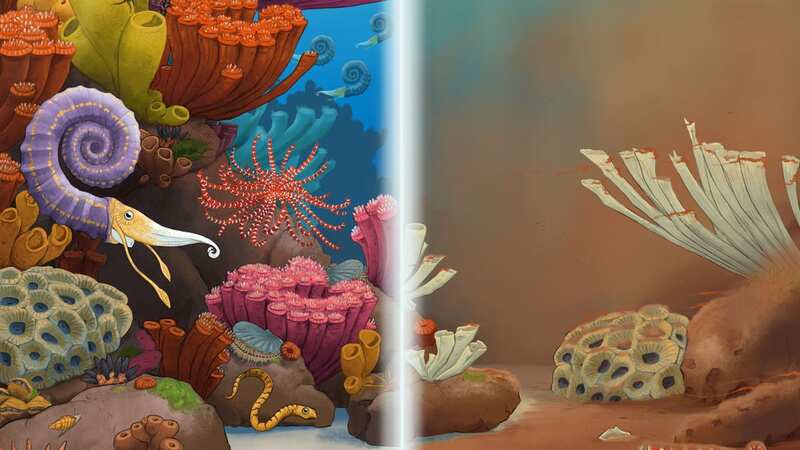Climate change is 'causing animal extinctions', warns new study
Climate change is fuelling animal extinctions, warns a new study.
Oxford University researchers used fossil records to better understand what factors make animals more vulnerable to extinction as a result of global warming. The study revealed that species exposed to greater climate change were more likely to become extinct.
First author Cooper Malanoski, of Oxford's Department of Earth Sciences said: "Our study revealed that geographic range was the strongest predictor of extinction risk for marine invertebrates. But the magnitude of climate change is also an important predictor of extinction, which has implications for biodiversity today in the face of climate change."
The research, published in the journal Science, analysed the fossil record for marine invertebrates like snails and shellfish from over the past 485 million years. Marine invertebrates have a rich and well-studied fossil record, making it possible to identify when, and potentially why, species become extinct.
The results could help to identify species most at risk today from human-driven climate change. Researchers analysed over 290,000 fossil records covering more than 9,200 groups. They collated a dataset of key traits that may affect resilience to extinction including preferred temperature. The study concluded that species that experienced temperature changes of 7C or more across geological stages were significantly more vulnerable to extinction.
 Nursery apologises after child with Down's syndrome ‘treated less favourably’
Nursery apologises after child with Down's syndrome ‘treated less favourably’
As well as species occupying climatic extremes, like the polar regions were disproportionately vulnerable to extinction. The research also determined that species with larger geographic ranges were significantly less likely to go extinct whilst small sized species are also more likely to become extinct. These results could help identify the animals that are most at risk and inform strategies to protect them.
Lead author Oxford Professor Erin Saupe said: "The evidence from the geological past suggests that global biodiversity faces a harrowing future, given projected climate change estimates. In particular, our model suggests that species with restricted thermal ranges of less than 15C, living in the poles or tropics, are likely to be at the greatest risk of extinction.
"However, if the localised climate change is large enough, it could lead to significant extinction globally, potentially pushing us closer to a sixth mass extinction." Additional research on how climate change interacts with other potential drivers of extinction need to be performed.
Professor Dan Lunt, of the University of Bristol, added: "This study shows that over the course of Earth's history, the extinction risk of marine life has been inextricably linked to climate change. This should act as a stark warning to humanity as we recklessly continue to cause climate change ourselves through burning fossil fuels."
Read more similar news:
Comments:
comments powered by Disqus

































